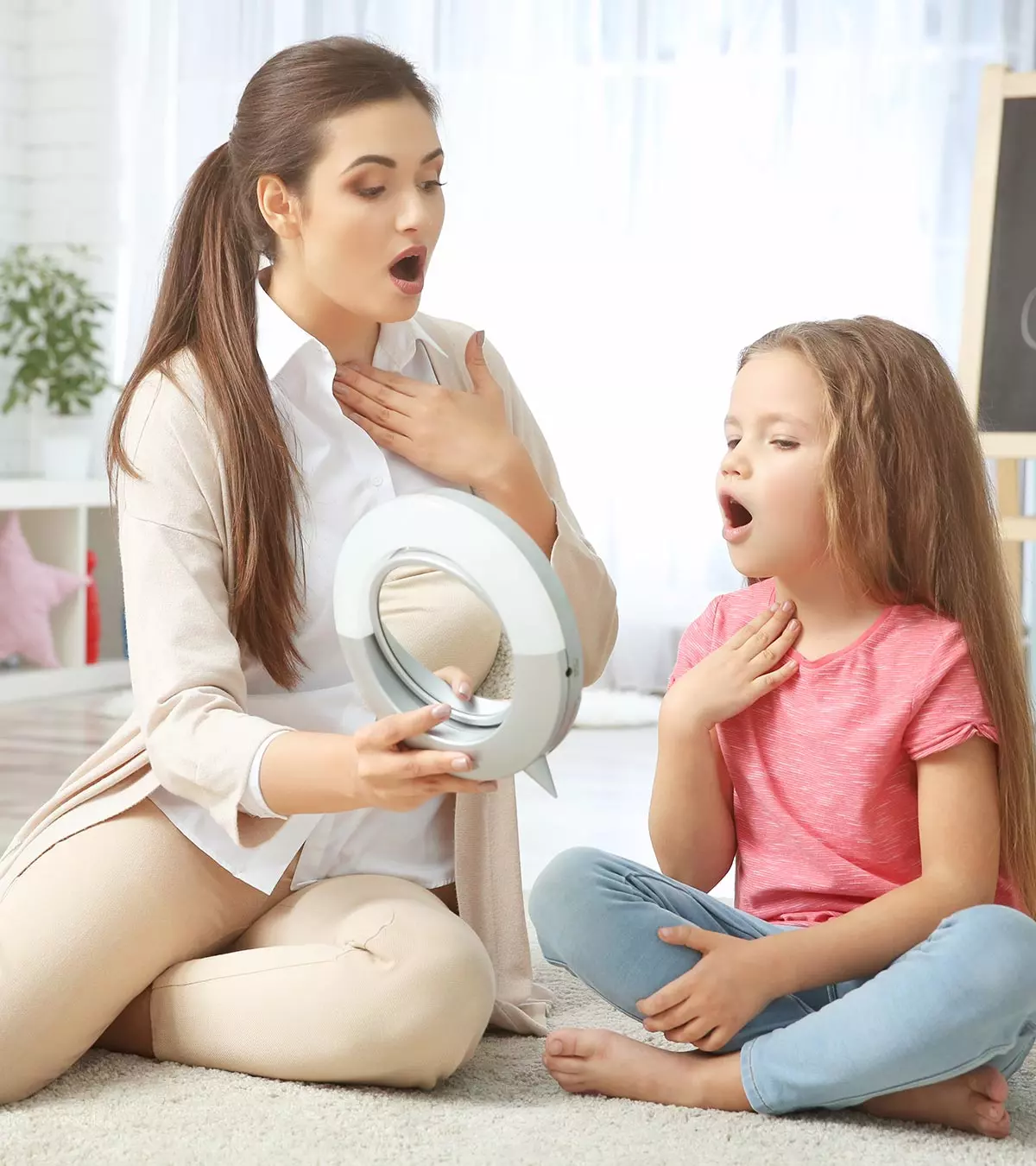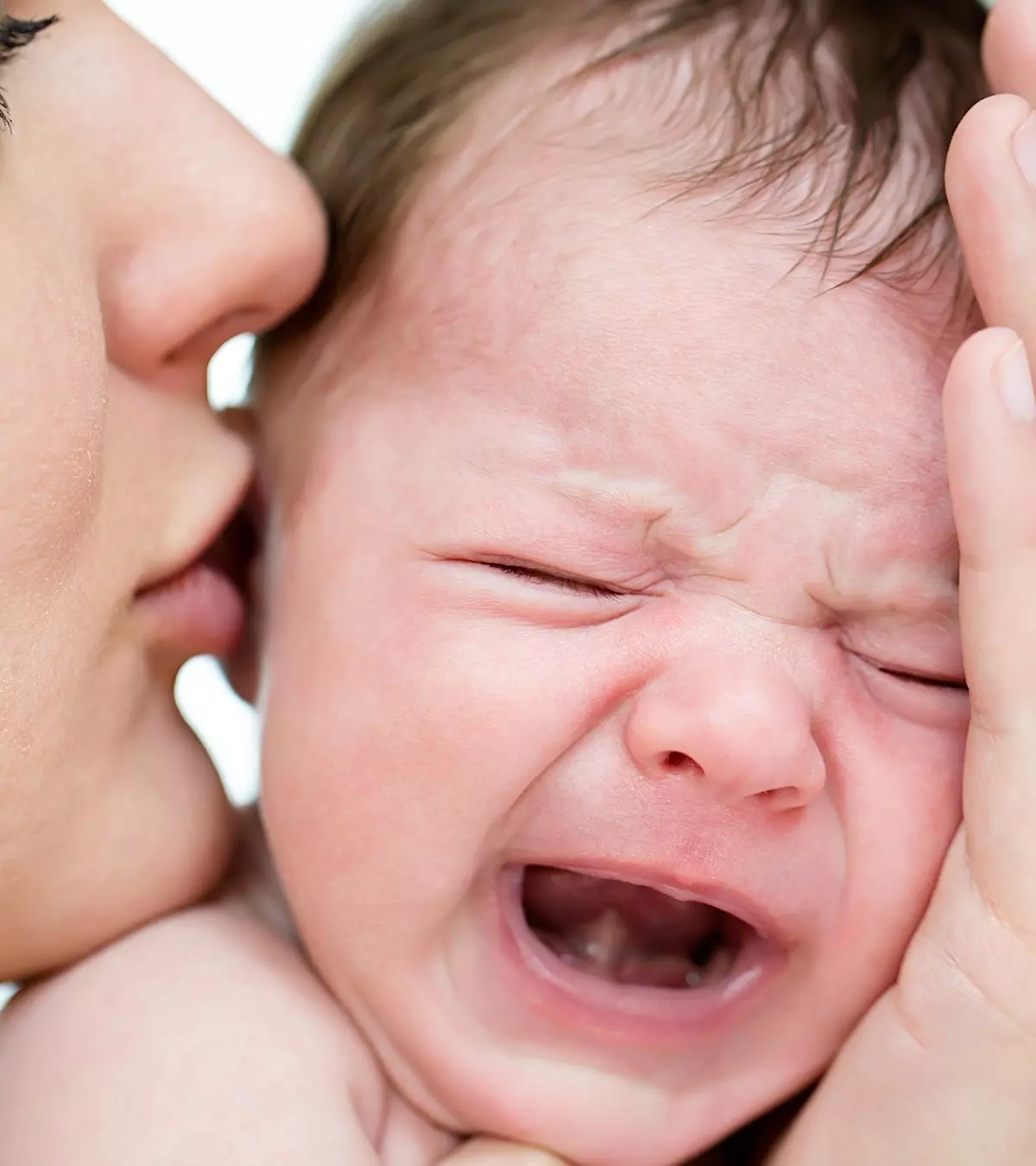
Image: Midjourney/ MomJunction Design Team
When children approach puberty, they go through various physical and emotional changes. While the menstrual cycle marks the start of adolescence for girls, the appearance of facial hair, such as beards and mustaches, marks the start of adolescence for boys. You may also find some teenage boys searching online for “how to grow a beard as a teenager” to appear more mature and older.
Some teen boys may even become anxious about the appearance of their mustache and beard. If you are the parent of a teenage boy or know someone who is concerned about his mustache or is losing patience worrying why he hasn’t developed a beard yet, you may want to know how to help him. Facial hair growth can vary widely from person to person and may take time. It’s important to encourage your son to be patient during this process. Read this post as we share useful beard growth tips to help your teen grow a beard and mustache faster. But first, let’s have a look at the different stages of beard growth.
Key Pointers
- Load your teen’s diet with fruits, vegetables, and meat to ensure a balanced and healthy intake.
- Poor diet or vitamin deficiencies, such as B1, B6, and B12, may delay mustache growth in your teen.
- Encourage your teen to adopt a daily routine of exercising, washing their face, exfoliating, and applying eucalyptus-containing moisturizer.
- Improve blood circulation through facial massage and ensure at least 8 hours of sleep to encourage facial hair growth.
- A dermatologist may prescribe scientifically proven hair-growth lotions and serums after a thorough examination to increase beard and mustache growth.
Teenage Beard Growth Stages
For a teenage boy, a beard grows in different stages. Here is the most common pattern or stage in which a teen boy gets his full beard. This is just an approximate estimation, and the age may vary for each individual (1).
- 11 to 12 years: You will notice a first hint of facial hair on either side of the upper lip.
- 16 to 17 years: The hair grows over the entire upper lip, and a small patch of hair may be found below the lower lip. Sideburns emerge, and they may extend the hairline around the cheeks.
- 17 to 21 years: Facial hair growth intensifies, and they grow a full beard.
Tips To Help Your Teenage Son Grow His Mustache And Beard Faster
Many teens may wonder how to grow a beard faster. While various factors affect hair growth, these tips may help speed up facial hair growth, especially for a mustache.
1. Clean the face regularly

Following a good skin care regimen can help keep the skin healthy and may provide a better environment for hair growth. Ask your teen to wash his face twice a day using a mild cleansing gel or soap and warm water as it helps open the pores of the skin (2).
According to the American Academy of Dermatology, as stated by Dr. Anthony Rossi, a board-certified dermatologist, moisturizing and massaging your beard are key to keeping it healthy. He suggests a simple three-step routine that involves cleansing the face and beard with a gentle cleanser, using a moisturizer, and applying beard oil or conditioner for proper grooming.
2. Exfoliate dead skin cells
In most cases, the skin is layered with dead skin cells that block the natural or fast growth of facial hair. Thus, your teen could use a good exfoliating scrub at least twice a week to remove the dead skin cells and clear out the skin, which may aid in hair growth (2). Make sure that the exfoliating scrub is specifically meant to be used by men and is also suitable for your teen son’s skin type, such as dry, oily, sensitive, or combination.
3. Use eucalyptus

While choosing a moisturizer or cream for the face, ask your son to use one that contains eucalyptus as one of its ingredients. Eucalyptus may help keep your teen’s skin moisturized and hydrated and remove any dry or rough patches (3). Once your teen’s skin is soft, facial hair growth is faster. However, it is better to avoid using excessive amounts to prevent irritation. If there are any skin concerns, consult a dermatologist for professional advice.
 Point to consider
Point to consider4. Take an adequate amount of vitamins and minerals
Not having enough vitamins can considerably slow the growth of facial hair in your teen son. If your teen does not follow a good diet or is deficient in important vitamins such as vitamins B1, B6, and B12, it could increase the time it takes for the mustache to appear. These vitamins and supplements may help increase the rate at which your teen’s facial hair appears. Talk to your doctor, who can recommend the necessary supplements after evaluating your teen’s nutritional needs.
5. Maintain a regular intake of protein

Having protein daily will also increase your teen son’s chances of growing facial hair and growing a mustache. Some of the best sources of protein include meat, eggs, lentils, nuts, and beans. Depending on whether your teen follows a non-vegetarian or vegetarian diet, you can ask him to eat accordingly. It’s a good idea to consult a dietitian or doctor to figure out the right amount of protein for your teen’s age and dietary preferences.
6. Have a balanced diet
The key to proper overall growth is a balanced and healthy diet (4). Make sure that your teen’s diet is rich in essential minerals and vitamins. Ask him to eat a mix of fruits, vegetables, and meat to get all the nutrition he needs.
7. Massage
Massaging the facial skin improves blood circulation and may promote hair growth. Find him a special beard oil that is meant for beard growth.
8. Rest well
It is important for your teen to get enough sleep and rest so that his body can grow the way it is supposed to. Having, at least, eight hours of sleep a day is crucial, as it will help to recharge the body and also encourage the growth of hair.
9. Exercise

Regular exercise improves blood circulation and potentiates testosterone levels in the blood (5). Try including some exercises in his routine, especially in the morning, as testosterone levels peak in the morning.
10. Take medications
If the beard growth is still not improving, it is time to visit a dermatologist. A dermatologist, after proper examination of hormones and other health parameters, may start hair-growth lotions and serums that have scientific evidence of increasing beard and mustache growth.
11. Manage stress
Excessive stress is known to cause hair loss and can also impede hair growth. Therefore, staying relaxed might help promote better beard growth (6). To reduce stress, consider engaging him in physical exercise and meditation, such as guided meditation, mindfulness, and visualization (7). Yoga is another popular and effective method for stress relief. Additionally, listening to soothing music can help relax the mind. Experiment with these techniques to find what works best for your teen.
12. Resist trimming
There is a common belief that trimming your beard regularly can encourage faster growth, but there is no scientific evidence to back this up. Shaving or trimming doesn’t affect the thickness, color, or growth rate of the hair (8). So, once your child’s beard begins growing, especially during the first few weeks, it’s best to let it grow without trimming it.
Impact Of Genetics On Beard Growth
Your genetic composition plays a pivotal role in determining the thickness and density of your facial hair. Androgens, vital for male reproductive functions, also drive the development of secondary sexual traits like facial and body hair growth (9). During puberty, facial hair responds to testosterone, transitioning from fine to thicker strands. However, the extent of thickness is predominantly governed by genetic factors. Additionally, genetics dictate the pattern of facial hair growth (10). Factors such as ethnicity and family history may influence how quickly and densely facial hair grows.
Although genetics play a crucial role in beard growth, you can help your child enhance their beard growth by taking good care of it. This means eating healthy foods, staying clean, and using grooming products like beard oils and brushes.
Tips To Take Care Of Your Beard
After your child has reached his beard-growing goals, it is important to keep his beard healthy. The following products might help assist your child in keeping his beard neat, nourished, and moisturized.
- Beard oil: Beard oil helps keep the beard and skin soft while also helping eliminate tangles and split ends. The best beard oils also have a pleasant scent.
- Beard balm: A beard balm can be applied to condition and style the beard. Regular use of beard balm can help prevent dandruff and itchiness while keeping the facial hair moisturized and healthy.
- Beard brush: A beard brush is handy for keeping facial hair in good shape. Its bristles are designed to clear away dirt and train the hair to grow correctly. It is best to brush the beard every day, either in the morning or after a shower.
While using the products, encourage your child to be gentle and to follow the instructions. By following the right grooming routine and using the right products, he can maintain a healthy and stylish beard.
Frequently Asked Questions
1. How often should teenagers shave?
There are no fixed rules on how often you should shave. Shaving and grooming a beard is a personal decision, and you may do it depending on how fast your beard grows. Generally, shaving every one to three days may give you smooth-looking skin (11). According to an anonymous blogger, “I used to shave four times a week when I was a high school student. This habit continued into the summer until I attended orientation for Mississippi College. While I was here, one of my friends dared me to grow my beard. I took this challenge up and grew a fully developed beard for the first time ever. I have never looked back on this endeavor (i).” However, since every boy is different, the results may vary, and one should not compare the outcomes.
2. At what age does the beard grow fully?
Beard growth mainly depends on genetics and ethnicity, so the age when the beard grows fully varies from person to person. In most people, it may continue to grow in thickness and coarseness in adulthood.
3. How does hormonal development during the teenage years affect beard growth?
During the teenage years, hormones greatly influence beard growth. As boys go through puberty, testosterone levels rise, which stimulates the development of facial hair. The thickness and darkness of the hair produced depend on the increasing levels of this hormone. However, the speed and pattern of beard growth can vary from one person to another (12) (13).
As your son journeys through adolescence, knowing a few tips on how to grow a beard as a teenager can go a long way toward achieving their beard goals. Sometimes, teens can be anxious about thin and uneven beards and mustaches and look for ways to grow them thicker. Exfoliating the dead skin, cleaning the face regularly, massaging the face, taking adequate nutrition including proteins, minerals, and vitamins, exercising, and resting are some skin care tips for teens that can promote beard growth in puberty. Using eucalyptus oil may also help enhance hair growth. You may consider a dermatologist appointment and use prescribed hair growth lotions or serum if needed.
Infographic: Effective Tips To Grow Mustache And Beard Faster
Teens love beards, and patchy beards often make them feel insecure. However, certain lifestyle changes can spurt your teen’s hair and mustache growth. Read this infographic to know how your teenage son can grow his mustache and beard faster. Illustration: Momjunction Design Team

Illustration: Tips To Grow Teen Facial Hair Faster

Image: Stable Diffusion/MomJunction Design Team
Accelerate natural beard growth in the comfort of your own home with this simple and comprehensive guide! Get tips on the best home remedies for teenage beard growth.
Personal Experience: Source
MomJunction articles include first-hand experiences to provide you with better insights through real-life narratives. Here are the sources of personal accounts referenced in this article.
i. College tip: Grow a beard.https://mississippicollege.wordpress.com/2013/07/01/college-tip-grow-a-beard/
References
- Puberty: Changes for Males.
https://www.sutterhealth.org/health/puberty-changes-males - A Dermatologist’s top tips for a healthy beard.
https://www.aad.org/public/everyday-care/skin-care-secrets/face/healthy-beard - Akira Mamada et al., (2008); Changes in hair properties by Eucalyptus extract.
https://pubmed.ncbi.nlm.nih.gov/19156331/ - Healthy eating for adolescents
https://www.nidirect.gov.uk/articles/healthy-eating-adolescents - Ruba Riachy et al., (2020); Various Factors May Modulate the Effect of Exercise on Testosterone Levels in Men.
https://www.researchgate.net/publication/346760866_Various_Factors_May_Modulate_the_Effect_of_Exercise_on_Testosterone_Levels_in_Men - How stress causes hair loss.
https://www.nih.gov/news-events/nih-research-matters/how-stress-causes-hair-loss - Managing stress in high school.
https://summer.harvard.edu/blog/managing-stress-in-high-school/ - Shaving hair: Does shaved hair grow back thicker?
https://www.beaconhealthsystem.org/library/faqs/shaving-hair-does-shaved-hair-grow-back-thicker/ - Androgen Deficiency In Men.
https://www.betterhealth.vic.gov.au/health/conditionsandtreatments/androgen-deficiency-in-men - DIY Treatment For 5 Common Beard Problems
https://www.aad.org/public/everyday-care/skin-care-secrets/face/diy-treatment-common-beard-problems - Shaving Facial Hair.
https://youngmenshealthsite.org/guides/shaving/ - Understanding Puberty
https://kidshealth.org/en/parents/understanding-puberty.html - Monika Grymowicz et al.; (2020); Hormonal Effects on Hair Follicles; NCBI
https://www.ncbi.nlm.nih.gov/pmc/articles/PMC7432488/#:~:text=Androgens%E2%80%94such%20as%20testosterone%20(T
Community Experiences
Join the conversation and become a part of our nurturing community! Share your stories, experiences, and insights to connect with fellow parents.
Read full bio of Dr. Deepak Jakhar
Read full bio of Manjiri Kochrekar
Read full bio of Harshita Makvana
Read full bio of Ghazia Shah

























